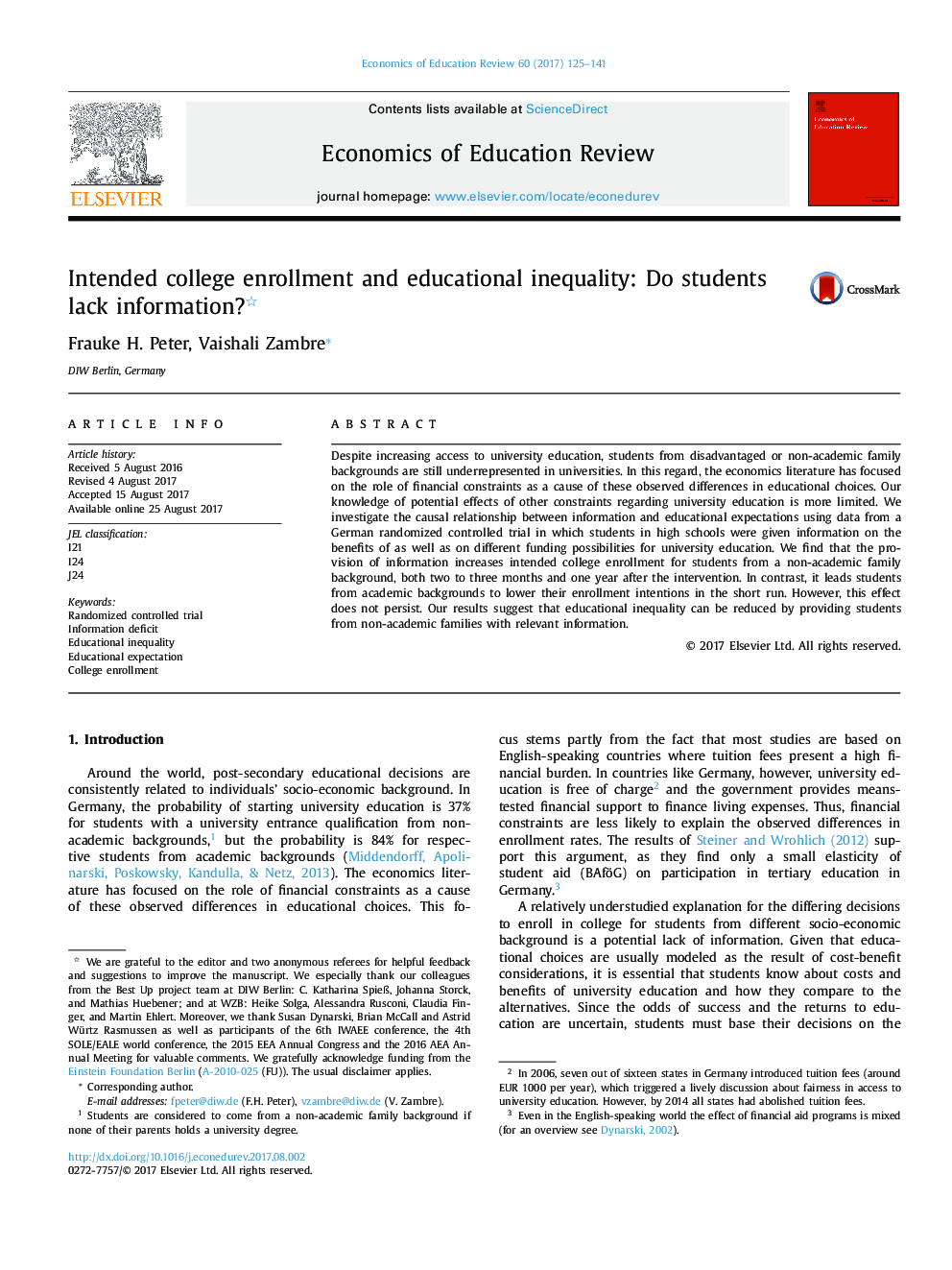| Article ID | Journal | Published Year | Pages | File Type |
|---|---|---|---|---|
| 4938272 | Economics of Education Review | 2017 | 17 Pages |
Abstract
Despite increasing access to university education, students from disadvantaged or non-academic family backgrounds are still underrepresented in universities. In this regard, the economics literature has focused on the role of financial constraints as a cause of these observed differences in educational choices. Our knowledge of potential effects of other constraints regarding university education is more limited. We investigate the causal relationship between information and educational expectations using data from a German randomized controlled trial in which students in high schools were given information on the benefits of as well as on different funding possibilities for university education. We find that the provision of information increases intended college enrollment for students from a non-academic family background, both two to three months and one year after the intervention. In contrast, it leads students from academic backgrounds to lower their enrollment intentions in the short run. However, this effect does not persist. Our results suggest that educational inequality can be reduced by providing students from non-academic families with relevant information.
Related Topics
Social Sciences and Humanities
Economics, Econometrics and Finance
Economics and Econometrics
Authors
Frauke H. Peter, Vaishali Zambre,
